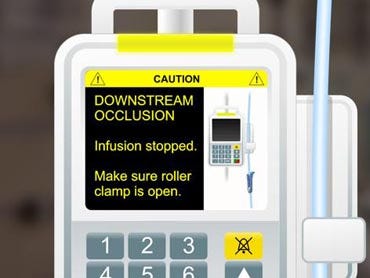November 12, 2015
 Creating an effective medical alarm may sound straightforward on the surface, but it is anything but. Up to 72-99% of alarms that go off in hospital settings are false, according to a 2013 article in the American Association of Critical-Care Nurses (AACCN) journal. The cacophony of alarms sounding in busy hospitals contributes to alarm fatigue--clinicians hear so many alarms that they begin to tune them out. John Hopkins Hospital reported in a study that, in its facility, 59,000 alarms sounded within 12 days, an average of 350 alarms per patient per day, according to the aforementioned AACN article.
Creating an effective medical alarm may sound straightforward on the surface, but it is anything but. Up to 72-99% of alarms that go off in hospital settings are false, according to a 2013 article in the American Association of Critical-Care Nurses (AACCN) journal. The cacophony of alarms sounding in busy hospitals contributes to alarm fatigue--clinicians hear so many alarms that they begin to tune them out. John Hopkins Hospital reported in a study that, in its facility, 59,000 alarms sounded within 12 days, an average of 350 alarms per patient per day, according to the aforementioned AACN article.
Of course, there is also a problem with some alarms not sounding when they should, which can lead to grave injury or death in the case that ventilators or infusion pumps fail to register critical events. In fact, alarm problems are a frequent cause behind Class I recalls of infusion pumps. In March, for instance, FDA gave Class I status to a Hospira recall involving 4700 infusion pumps over an alarm problem.
More Top Medical Device Dangers to Avoid in 2016>>
Learn more about medical technology trends at BIOMEDevice San Jose, December 2-3. |
About the Author(s)
You May Also Like


